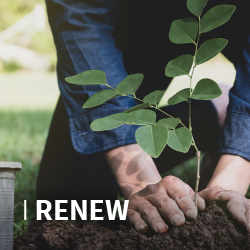The 2021 ISRI Fall Meetings began Monday, Oct. 18, in Charleston, S.C. The meetings run through Wednesday, Oct. 20. Most meetings are open and free for ISRI members to attend. Register here.
Ferrous Division Chair Jim Wiseman, executive vice president at Smart Recycling Management, called the meeting to order at 4:30 p.m. on Monday, Oct. 18. “Obviously, there’s nothing to talk about in transportation,” Wiseman said jokingly.
Ben Abrams, president of Consolidated Scrap Resource, supplied insights on Surface Transportation Board (STB) concerns. These include the STB’s denial of the proposed merger of the Canadian National Railway and Kansas City Southern Railway; end of the comment period for issues of first mile/last-mile (FMLM) service; and railroad revenues. Several members in attendance noted the ongoing problems their businesses have with inconsistent rail service.
Billy Johnson, ISRI’s chief lobbyist, covered recent regulatory moves related to transportation. The STB is considering revised competitive switching and rate arbitration. Federal Maritime Commission Managing Director Lucille Marvin recently sent a letter to 25 container lines, urging them to clearly develop processes related to detention and demurrage, and to clarify dispute-resolution measures. The Ocean Reform and Shipping Act introduced in August by congressmen John Garamendi, D-Calif., and Dusty Johnson, R-S.D., remains in the House Subcommittee on Coast Guard and Maritime Transportation.
Adina Renee Adler, ISRI vice president of advocacy, related that the Office of the U.S. Trade Representative said it would reopen the application process for U.S. companies to get out of paying tariffs on certain goods imported from China. This could open the way for importation of shredder wear parts.
On behalf of the Auto Recycling Committee, Co-chair John Bianculli brought members’ attention to the Environmental Protection Agency’s just-announced PFAS roadmap of inspections and actions, as well as ISRI’s ongoing effort to get the agency to renew the Mercury Switch Recovery Program. Bianculli also noted that 10 states recently passed anti-theft legislation to address the nationwide rash of catalytic converter thefts.
David Wagger, Ph.D., ISRI chief scientist and director of environmental management, discussed the launch of the second annual Bureau of International Recycling (BIR) survey that seeks data from shredder operators. The resulting BIR Shredder Safety Survey report is intended to enable shredder operators to benchmark their safety performance against other shredders around the world.
Joe Pickard, ISRI’s chief economist and director of commodities, noted that world steel production fell 1.4% year over year in August, but overall is up 10.6% year to date. “Business conditions faced by global steel users improved at a slower pace in September, according to the latest Global Steel Users PMI™ data,” he explains. “While output growth quickened for the first time since May, total new orders rose at the softest pace in the current 15-month sequence of expansion,” Pickard says.
“The slowdown was exacerbated by a renewed reduction in foreign demand,” he continues. “Steel users continued to report a slight easing in price pressures during September, which pushed the rate of selling price inflation to the slowest for seven months.”
ISRI’s U.S. ferrous market snapshot shows steel production up 19.5% year to date compared to 2020; imports up 25.5%; material processed up 17.8%; scrap exports up 9.6% and scrap imports up 38%.
Pickard reminds ISRI members that the association’s annual Economic Impact Study by John Dunham and Associates examines jobs and exports, and direct and indirect economic impacts at the national, state, and congressional district levels. The study can be customized to help a company educate its lawmakers at local, state, and federal levels about its community impact.
The meetings continue through Wednesday, Oct. 20. You may view the full schedule here.
Photo courtesy of ISRI.













